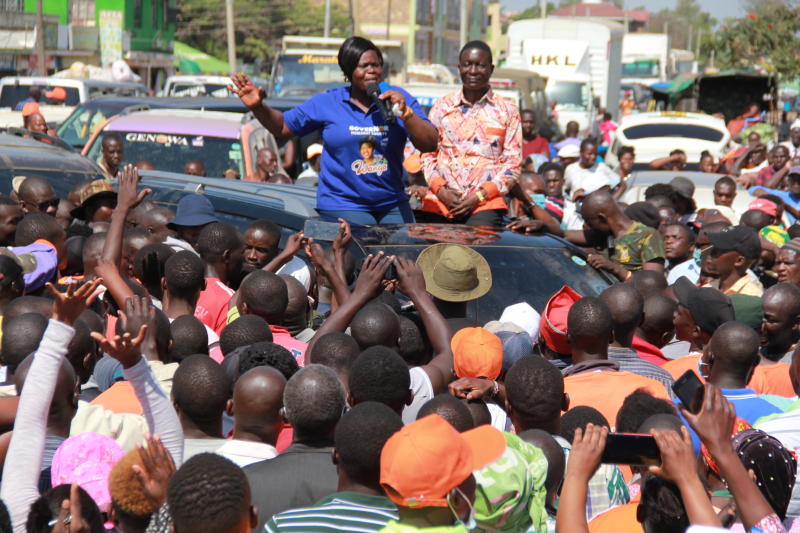×
The Standard e-Paper
Smart Minds Choose Us

Homa Bay Woman Rep Gladys Wanga and Kasipul MP Ong’ondo address voters in Kendu Bay town on February 11, 2022. [James Omoro, Standard]
The Homa Bay governor’s race may be determined by voter patterns that seem to divide the vast county into three voting blocs.